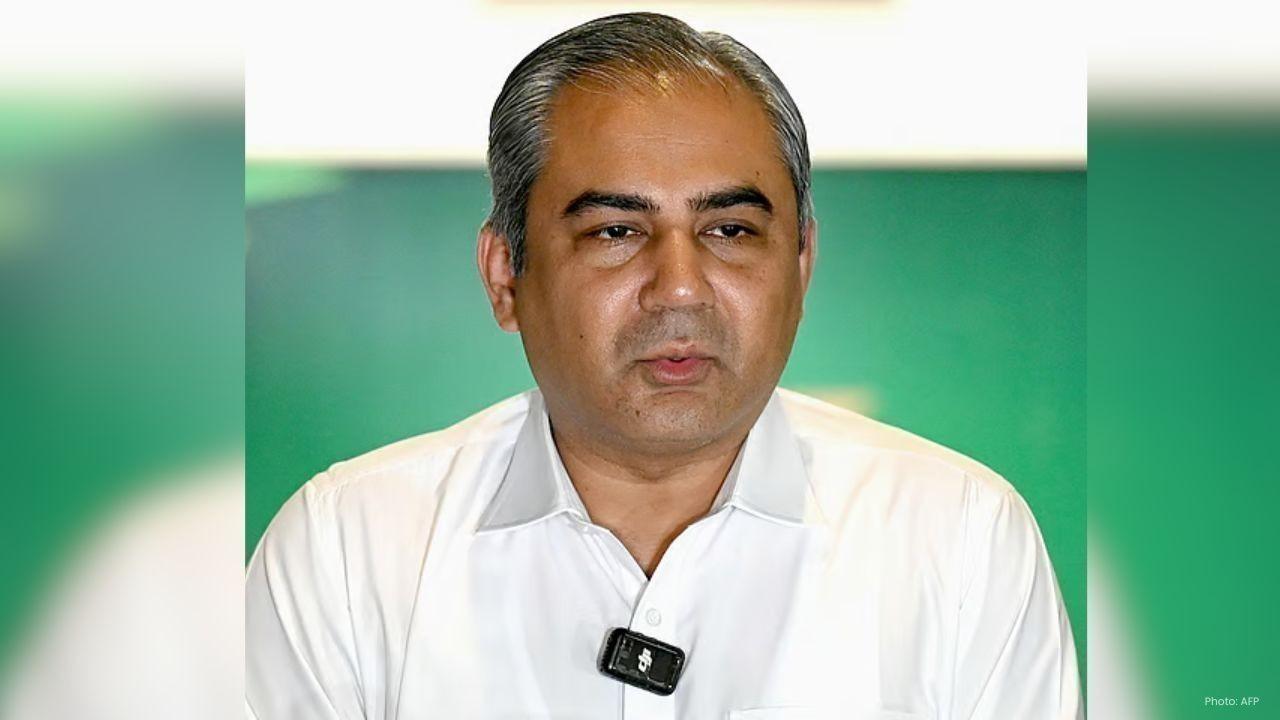
Post by : Monika
In recent months, financial markets around the world have been dominated by excitement over artificial intelligence, or AI. Tech companies developing AI tools, software, and platforms have seen rapid growth in their stock prices. Investors have been eager to get a piece of this fast-growing sector, hoping to benefit from the technological revolution.
However, some of the world’s largest asset managers are now urging caution. They say that while AI remains important, investors should also focus on long-term opportunities that come from government spending, which can create steady growth in key sectors over time.
The Rise of AI Investments
AI has captured the attention of both individual and institutional investors. Companies like Nvidia, Microsoft, and other AI-driven firms have experienced substantial stock price increases. Analysts say that the AI boom has generated huge hype, with investors rushing to buy shares in companies associated with AI development. This has caused some overvaluation, where stock prices rise faster than the actual earnings or profits of the company.
Despite this, AI continues to be transformative, with applications in healthcare, manufacturing, finance, and defense. However, experts warn that the AI hype may not last forever, and markets will eventually shift their focus to other sectors that offer long-term, stable growth.
Government Spending as a Key Driver
One of the main areas attracting investor attention now is government spending. Governments around the world are increasing their budgets for projects that can impact multiple industries. This spending often focuses on infrastructure, energy transition, healthcare, and defense, which are all sectors that can benefit from long-term investment.
For example, in the United States, the government recently passed a tax-cut and spending bill. This law extends tax cuts from previous administrations, provides funding for border security and defense, and reduces spending on some programs like Medicare and Medicaid. These measures have a direct impact on companies involved in construction, defense, and healthcare services.
In Europe, Germany has created a €500 billion infrastructure fund. This fund is exempt from the European Union’s debt limits, allowing Germany to invest heavily in projects that will improve roads, bridges, railways, and other public infrastructure. Such investments create opportunities for companies that provide materials, engineering services, and construction expertise.
Investor Strategies
Large asset managers like UBS Global Wealth Management and Generali Asset Management are already adjusting their strategies. UBS, which oversees $4.5 trillion in assets, is “investing thematically along with what governments are doing,” according to UBS Chief Investment Officer Mark Haefele. He points out that sectors such as power, resources, healthcare, and defense cannot be ignored because government spending in these areas has a significant market impact.
Saira Malik, Chief Investment Officer at Nuveen, which manages $1.3 trillion in assets, agrees that government spending is creating opportunities beyond the AI sector. She believes that equity gains will eventually expand to include cyclical sectors, small-cap stocks, and value plays, rather than only tech-heavy stocks in the U.S.
Investors are encouraged to maintain a balanced portfolio, combining high-growth sectors like AI with more stable sectors supported by government spending. Malik highlighted infrastructure, utilities, and waste management as examples of sectors that are both resilient and effective hedges against inflation.
Active Management Over Passive Investing
Both UBS and Nuveen emphasize that active investment management is crucial in the current market. Active management involves carefully selecting investments based on research, market trends, and economic indicators, rather than simply following a market index, which is the passive approach.
Mark Haefele stated that it is a time for selectivity and strategy, not just broad market exposure. By carefully choosing sectors and companies that align with long-term government initiatives, investors can reduce risk and take advantage of growth opportunities in areas like energy, healthcare, and defense.
Infrastructure Projects
Government-funded infrastructure projects create demand for construction companies, engineers, and raw materials like steel and cement. This spending can provide consistent revenue for companies involved in these sectors for years.
Energy Transition
Many countries are investing in renewable energy, electric grids, and clean technologies. Companies that provide solar panels, wind turbines, battery storage, and smart grid technologies are likely to benefit from this sustained investment.
Healthcare Spending
Governments increasing healthcare budgets often fund hospitals, medical equipment, and research projects. Pharmaceutical and biotechnology companies may also benefit from grants and contracts.
Defense and Security
Defense budgets continue to rise in many countries. Investments in military equipment, cybersecurity, and intelligence systems provide opportunities for companies in the defense sector.
Global Examples
The Role of AI vs. Government Spending
While AI remains an exciting growth area, its impact is more uncertain and volatile compared to sectors driven by government spending. AI companies may experience rapid growth, but they also face intense competition, regulatory scrutiny, and technological risks.
On the other hand, sectors supported by government spending tend to have stable, long-term growth, as contracts and budgets are typically secured for multiple years. Investors are increasingly recognizing that combining AI investments with government-supported sectors creates a balanced portfolio, providing both growth potential and stability.
Market Trends and Outlook
S&P 500 Performance: The U.S. S&P 500 index has risen nearly 14% this year, driven largely by tech and AI stocks. However, experts predict that gains will eventually broaden to include other sectors like healthcare, infrastructure, and defense.
Europe: The aerospace and defense index in Europe has surged almost 68% this year, showing that government spending can lift specific sectors even amid broader market volatility.
Small-Cap and Value Stocks: Investors are looking at smaller companies and value stocks that stand to benefit from infrastructure projects, renewable energy, and defense contracts.
Inflation-Resilient Sectors: Utilities, waste management, and energy transition sectors are considered resilient to inflation, providing stable returns even in uncertain economic environments.
Benefits for Long-Term Investors
Challenges and Risks
Strategic Advice
AI investment artificial intelligence government spending










Sinner & Swiatek Shine at China Open: Semifinal Spots Secured
Jannik Sinner and Iga Swiatek advance to the semifinals at the China Open. Read about their victori

Michigan church attack kills 4, injures 8 in shocking violence
A gunman drove into a Michigan church, fired shots, set fire, killing 4 and injuring 8 before police

Moldova’s Pro-EU Party Secures Majority in Key Vote
Moldova’s pro-European PAS wins a strong majority in the parliamentary election, weakening pro-Russi

Gabriel’s late header gives Arsenal 2-1 win at Newcastle
Arsenal snatch dramatic 2-1 win at Newcastle as Gabriel heads the winner in stoppage time; Merino eq

Air France Flight 447 Trial Opens 16 Years After Tragic Crash
Sixteen years after the Air France Flight 447 crash, a trial opens against Air France and Airbus. Le

Europe close to Ryder Cup win after strong weekend play
Team Europe is on the verge of winning the Ryder Cup, showing great form in Italy and needing only a